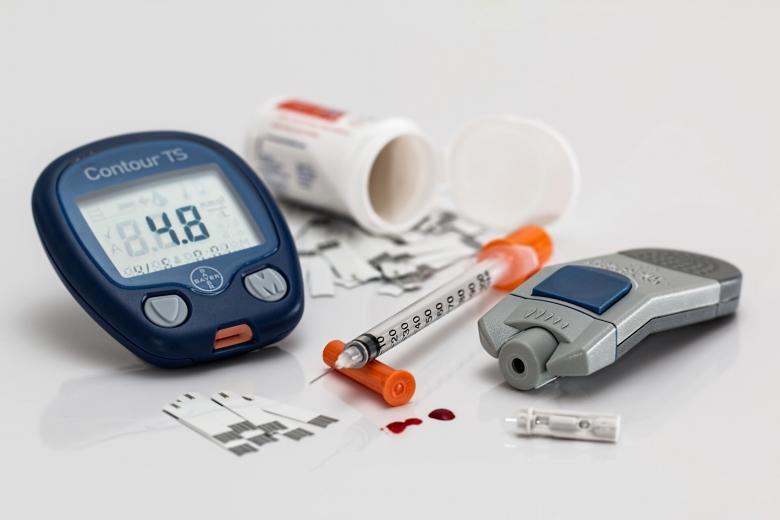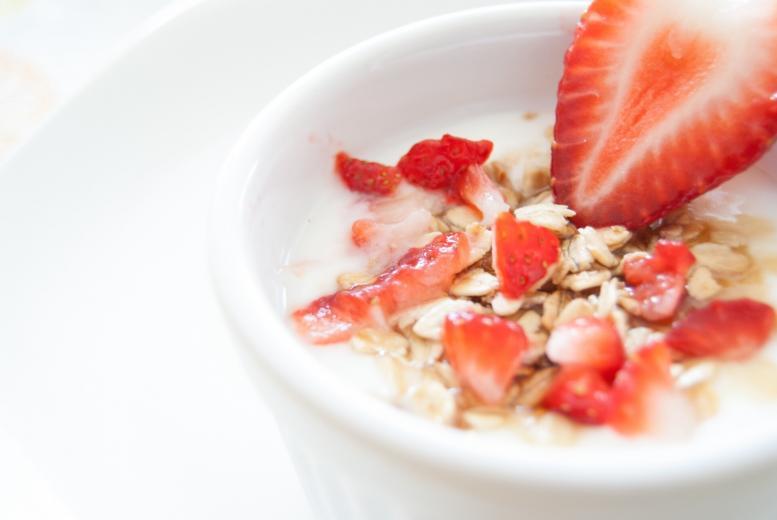Stress and Your Immune System
[et_pb_section bb_built=”1″ admin_label=”section”][et_pb_row admin_label=”row” background_position=”top_left” background_repeat=”repeat” background_size=”initial”][et_pb_column type=”4_4″][et_pb_text background_position=”top_left” background_repeat=”repeat” background_size=”initial”]Stress is a normal part of modern daily life, but most people are not aware of the negative consequences of stress on their health–until it is too late. Some people are able to cope with stress better than others, while others take practical steps to reduce their stress each day to diminish the wear and tear on their bodies and minds.
However, most of us are not aware of just how much stress is harming our health until we are diagnosed with a serious illness such as heart disease and then told we need to make drastic changes to our lifestyle if we wish to live longer.
So what exactly is stress? Stress is the body and mind’s response to any unusual event or situation which challenges us and makes us feel under pressure in some way. Stress provides the body with a burst of energy in the form of adrenaline, the “fight or flight” response that is part of human nature.
People either run away from the thing that stresses them, or they turn and try to deal with it in a variety of ways, some of which will be more successful strategies than others.
Our life is stressful from the moment we are born. There is the stress of birth, of feeling hunger, or needing our diaper changed. At school, there is the stress of performing well on exams, in presentations in front of the class, the school play, or on the school sports team. In our university years, there are the stresses of needing to maintain a good enough GPA to stay in school, or perhaps even get a scholarship or acceptance to grad school. Then there are social stresses, dating, relationships, friendships, peer pressure, and more.
As adults outside of school, there is the stress of whether or not we will find a job. If we don’t, there is the stress of trying to make ends meet. Even if we do manage to get a job, there is the stress of trying to keep it, let alone try to get a raise, promotion, and so on. Even happy occasions such as a new job, wedding, baby or home can trigger stress in the body.
Most of us work very hard and ‘burn the candle at both ends’ in order to try to keep up with all the demands on our time every day. This can lead to a lack of sleep and of ‘downtime’ or relaxation to help recharge the body and mind. The lack of rest and downtime can in turn lead to a weakened immune system.
A lack of sleep has been shown to have the same effects on the immune system as stress. Stress in turn can interfere with one’s ability to fall asleep and stay asleep. This in turn can create a vicious cycle of even more stress through sleep deprivation, which can leave your immune system vulnerable and open to attack.
If you’ve been acting like a workaholic, not getting enough sleep, and not taking time out for relaxation, it’s time to get your stress under control. Above all, you need to avoid burning out and damaging your immune system so much that it triggers excessive inflammation, since inflammation has been implicated in many medical conditions, such as arthritis, diabetes and certain forms of cancer.
There are many ways to reduce stress effectively, from yoga to meditation, tai chi to a warm, relaxing bath, a good night’s sleep to spending quality time with friends and family. If you have been overworking, it’s time to make some new appointments on your calendar with yourself in order to reduce stress, add exercise and sleep to your daily routine, and care better for yourself even as you boost your immune system.
[/et_pb_text][et_pb_image admin_label=”Autoimmune Blog Ad 2″ saved_tabs=”all” src=”https://thefunctionalperspective.com/wp-content/uploads/leadmagnets/LM-blog-autoimmunity1.jpg” show_in_lightbox=”off” url=”https://thefunctionalperspective.com/lm/foods-autoimmune-diseases” url_new_window=”off” use_overlay=”off” animation=”off” sticky=”off” align=”left” force_fullwidth=”off” always_center_on_mobile=”on” use_border_color=”off” border_color=”#ffffff” border_style=”solid” global_module=”2853″ /][et_pb_text _builder_version=”3.0.85″ background_layout=”light”] [social_warfare] [/et_pb_text][/et_pb_column][/et_pb_row][/et_pb_section]Success Strategies for Boosting Your Immune System
 [et_pb_section bb_built=”1″ admin_label=”section”][et_pb_row admin_label=”row” background_position=”top_left” background_repeat=”repeat” background_size=”initial”][et_pb_column type=”4_4″][et_pb_text background_position=”top_left” background_repeat=”repeat” background_size=”initial”]
[et_pb_section bb_built=”1″ admin_label=”section”][et_pb_row admin_label=”row” background_position=”top_left” background_repeat=”repeat” background_size=”initial”][et_pb_column type=”4_4″][et_pb_text background_position=”top_left” background_repeat=”repeat” background_size=”initial”]
Many over the counter products, vitamins and supplements claim to help improve your health, but the best strategies for boosting your immune system involve a number of simple strategies anyone can follow through with. Some of the best success strategies to boost your immune system are:
+Eating a healthy diet
+Losing weight if you are carrying extra pounds
+Exercising regularly
+Getting more sleep
+Decreasing your-stress levels
+Making time for yourself
+Being sociable with friends and family
+Quitting smoking
+Avoiding taking too many antibiotics
+Cutting down on your alcohol consumption
Let’s look at each of these success strategies in turn.
We are what we eat, so a healthy diet can go a long way to preserving our health. Eating plenty of fresh fruits and vegetables offers a range of nutrients and antioxidants as well, powerful disease-fighting molecules found in certain foods such a berries, legumes and apples. Eating a rainbow every day will help you achieve a balanced diet, and the fiber and water in these foods will also help you feel fuller for longer, which in turn can help with weight loss.
If you are carrying extra weight, turn to more natural foods to help slim down. Don’t rely on supplements or packaged diet foods, but rather, fresh fruits and vegetables, lean protein, and smaller portions.
Regular exercise can also help you achieve your weight loss goals, and boost your immunity too. Exercise improves digestion and helps eliminate toxins from the body. It also stimulates circulation, including not only the blood but the lymphatic system, which helps the body ward off illness.
Getting more sleep can help boost the immune system, especially if it is high-quality, deep, restorative sleep. If you’re feeling stressed, it can be difficult to fall asleep and/or stay asleep. Stress reduction strategies such as meditation can help lower your stress levels and improve your quality of sleep.
You can also decrease your stress by making more time for yourself to do some of the things you enjoy. This can include hobbies, time at the gym getting more exercise, or going for long walks. It should also include making time for the relationships that are important to you by spending quality time with friends and family. Loneliness and feelings of isolation can make you feel run down; surrounding yourself with positive people can help boost your immune system.
By now we all know about the negative effects of smoking on the body, especially the immune system. It scorches away the cilia, the little hairs that line the nostrils and nasal passages, for example, making it far easier for germs to get into your body.
Many people turn to a range of pills in an attempt to boost their health, and when used correctly, they may be beneficial. The flipside is that excessive use can cause harm. In particular, antibiotics can damage your immune system as they kill off both helpful and harmful bacteria. They do not help against colds and flu, so do not ask for a prescription from your doctor in the hope you will get better faster.
If you do have to take an antibiotic, take it EXACTLY as prescribed. Once you have finished the full course of treatment, try to get your system back in balance by consuming probiotics such as yogurt, cheese, miso or sauerkraut.
Finally, if you consume a lot of alcohol, especially in an attempt to reduce stress, try cutting down. Alcohol has many negative effects on the body, suppressing the immune system on the one hand and increasing inflammation on the other.
Adopt these simple success strategies to boost your immune system and see what a difference they can make to your health.
[/et_pb_text][et_pb_image admin_label=”Autoimmune Blog Ad 2″ saved_tabs=”all” src=”https://thefunctionalperspective.com/wp-content/uploads/leadmagnets/LM-blog-autoimmunity1.jpg” show_in_lightbox=”off” url=”https://thefunctionalperspective.com/lm/foods-autoimmune-diseases” url_new_window=”off” use_overlay=”off” animation=”off” sticky=”off” align=”left” force_fullwidth=”off” always_center_on_mobile=”on” use_border_color=”off” border_color=”#ffffff” border_style=”solid” global_module=”2853″ /][et_pb_text _builder_version=”3.0.85″ background_layout=”light”] [social_warfare] [/et_pb_text][/et_pb_column][/et_pb_row][/et_pb_section]The Effect of Alcohol on Your Immune System
 [et_pb_section bb_built=”1″ admin_label=”section”][et_pb_row admin_label=”row” background_position=”top_left” background_repeat=”repeat” background_size=”initial”][et_pb_column type=”4_4″][et_pb_text background_layout=”light” text_orientation=”left” use_border_color=”off” border_color=”#ffffff” border_style=”solid” module_alignment=”left” background_position=”top_left” background_repeat=”repeat” background_size=”initial”]
[et_pb_section bb_built=”1″ admin_label=”section”][et_pb_row admin_label=”row” background_position=”top_left” background_repeat=”repeat” background_size=”initial”][et_pb_column type=”4_4″][et_pb_text background_layout=”light” text_orientation=”left” use_border_color=”off” border_color=”#ffffff” border_style=”solid” module_alignment=”left” background_position=”top_left” background_repeat=”repeat” background_size=”initial”]
Alcohol is a prevalent drug of choice in Western society, one that many people turn to in order to relieve stress, relax, and ‘enjoy themselves’. However, recent studies are starting to give us a clearer picture of just how harmful alcoholic beverages can be to our overall health.
In particular, ‘binge drinking’ is on the rise in the US and around the world. The National Institute on Alcohol Abuse and Alcoholism (NIAAA) defines binge drinking as a pattern of drinking alcoholic beverages rapidly that brings blood alcohol concentration (BAC) levels to 0.08 g/dL. This typically occurs after 4 drinks for women and 5 drinks for men—in about 2 hours.
A small but significant study published in early 2015 regarding binge drinkers demonstrated both a highly pro-inflammatory response 20 minutes after the alcohol was consumed, followed by an anti-inflammatory response that reduced the activity of several important disease-fighting cells in the immune system.
According to the Centers for Disease Control and Prevention (CDC), one in six U.S. adults binge drinks about four times a month, consuming about eight drinks per binge. Many might assume that binge drinking is more common among young adults aged 18–34 years. However, one alarming statistic that has emerged is binge drinkers aged 65 years and older binge drink more often, at an average of five to six times a month.
Approximately 92{0af7829aa7c92fa2d438546a4f8732e509b4b47adbb4a9c0a81907a3e637def5} of U.S. adults who drink excessively report binge drinking in the 30 days prior to taking the survey. Although college students commonly binge drink, 70{0af7829aa7c92fa2d438546a4f8732e509b4b47adbb4a9c0a81907a3e637def5} of binge drinking episodes involve adults age 26 years and older. Binge drinking is more common among those with household incomes of $75,000 or more than among those with lower incomes. The prevalence of binge drinking among men is twice that of women.
These statistics give us a clear image of a stressed businessman or older person commonly binge drinking attempting to escape from it all or ‘drown their sorrows’.
Alcohol generally has negative effects on the body when indulged in over time, but binge drinking is particularly associated with a range of health issues such as alcohol poisoning, high blood pressure, stroke, liver disease and neurological damage.
The NIAAA has linked alcohol-related liver issues to auto-immune disorders, with the body attacking itself due to what the immune system perceives as a threat. They have also linked even moderate alcohol consumption to pneumonia, tuberculosis, HIV, Hepatitis B and C, other serious infections, and kidney disease. They also suggest that alcohol can affect your white blood cells, brain cells, and DNA.
One glass of red wine occasionally as part of the Mediterranean diet is considered to have heart healthy benefits, but the effects of large amounts of strong alcohol on your body and immune system is not one you should ignore if you wish to maintain optimal health no matter what your age.
[/et_pb_text][et_pb_image admin_label=”Autoimmune Blog Ad 2″ saved_tabs=”all” global_module=”2853″ src=”https://thefunctionalperspective.com/wp-content/uploads/2017/04/Hashimoto.jpg” show_in_lightbox=”off” url=”https://thefunctionalperspective.com/lm/foods-autoimmune-diseases” url_new_window=”off” use_overlay=”off” animation=”off” sticky=”off” align=”left” force_fullwidth=”off” always_center_on_mobile=”on” use_border_color=”off” border_color=”#ffffff” border_style=”solid” /][et_pb_text _builder_version=”3.0.85″ background_layout=”light”] [social_warfare] [/et_pb_text][/et_pb_column][/et_pb_row][/et_pb_section]Weight Loss and Your Immune System
 [et_pb_section bb_built=”1″ admin_label=”section”][et_pb_row admin_label=”row” background_position=”top_left” background_repeat=”repeat” background_size=”initial”][et_pb_column type=”4_4″][et_pb_text background_position=”top_left” background_repeat=”repeat” background_size=”initial”]
[et_pb_section bb_built=”1″ admin_label=”section”][et_pb_row admin_label=”row” background_position=”top_left” background_repeat=”repeat” background_size=”initial”][et_pb_column type=”4_4″][et_pb_text background_position=”top_left” background_repeat=”repeat” background_size=”initial”]
If you are overweight or obese, you are not alone. But what you might not know is just how bad being overweight is for the immune system. The first reason is that the fat we hate on our belly, butt and thighs is not just ugly flab. Scientists believe that excess fat in the body also releases a range of potentially toxic substances which can leave you open to illness, or even trigger it.
The second main reason being overweight is bad is that toxic substances and chemicals we consume can also be stored in fatty tissue, making it doubly dangerous. These toxins might even accumulate over time, causing serious damage to the body.
A third reason is that body fat damages our metabolism, slowing it down, thus making it even harder for you to lose weight. Exercising to build muscle will reduce your overall percentage of body fat, and thus the number of toxins in your body as you increase your metabolism.
Lean muscle burns the calories you consume much more efficiently, leading to weight loss and healthy weight maintenance once you reach your weight loss goal. Yoga, tai chi, light weights, and resistance bands can all help you build lean muscle without looking like a body builder.
Another important reason why being overweight is so dangerous is that it is now being described as a persistent low level of chronic inflammation in the body. Therefore, doing all you can to get down to a normal, healthy weight and reducing the wear and tear on the body from inflammation can do a great deal to improve your overall health.
Watching what you eat can help cut calories, but did you know it can also reduce inflammation and add disease-fighting antioxidants to your diet? Eating a rainbow everyday of fresh fruits and vegetables can help you lose weight even as you eat a more nutritious and balanced diet.
Anti-inflammatory foods include salmon, broccoli, olive oil and peppers. Antioxidants are powerful disease-fighting agents found in red kidney bean, blueberries, apples and more.
Fruits and vegetables should be the cornerstones of any attempt to lose weight healthily. The water content and fiber will help you feel full for longer. They are also so tasty that adding these foods to your eating lifestyle will usually mean you will be more likely to steer clear of foods that are bad for you, such as red meat and highly-processed sugary sweets made with white sugar and white flour.
Exercise is key to reducing blood pressure and inflammation, decreasing stress, and elevating mood. Therefore, when used in combination with a healthy diet, you should soon see the benefits of weight loss for your appearance, mood and immune system.
[/et_pb_text][et_pb_image admin_label=”Autoimmune Blog Ad 2″ saved_tabs=”all” src=”https://thefunctionalperspective.com/wp-content/uploads/leadmagnets/LM-blog-autoimmunity1.jpg” show_in_lightbox=”off” url=”https://thefunctionalperspective.com/lm/foods-autoimmune-diseases” url_new_window=”off” use_overlay=”off” animation=”off” sticky=”off” align=”left” force_fullwidth=”off” always_center_on_mobile=”on” use_border_color=”off” border_color=”#ffffff” border_style=”solid” global_module=”2853″ /][et_pb_text _builder_version=”3.0.85″ background_layout=”light”] [social_warfare] [/et_pb_text][/et_pb_column][/et_pb_row][/et_pb_section]The Right Way To Carry Your Belongings To Reduce Pain
[et_pb_section bb_built=”1″ admin_label=”section”][et_pb_row admin_label=”row” background_position=”top_left” background_repeat=”repeat” background_size=”initial”][et_pb_column type=”4_4″][et_pb_text background_position=”top_left” background_repeat=”repeat” background_size=”initial”]It is hard to imagine that some so seemingly simple tasks as carrying your makeup and driver’s license can have adverse effects on your back and neck. Chiropractors have warned for years that men and women need to not only rethink the way they dress but just as importantly the way that they carry around their belongings. Perhaps not surprisingly, many a chiropractor seeks to counsel parents to help their children carry heavy school backpacks appropriately and in such a manner that the little ones will not suffer from short term back pain and even neck pain but in the long term will not find themselves with severely deformed spines which will not adjust themselves naturally any longer. Yet it is not only children who need to be made aware of the proper methods of carrying their books and other belongings, but adults need to learn – and in some cases re-learn – these tasks again themselves.
Men and women are guilty of carrying their belongings in such a manner as to negatively impact their bodies, yet it is women who are well known for carrying purses and backpacks that are so heavy as to rival any high school kid’s carrying case. Chiropractors strongly urge women and man to carry bags that amount to less than 10 percent of their individual body weight. The less weight the better, and to this end chiropractors suggest that people check their bags, handbags, and assorted other carrying devices and leave at home anything and everything that they do not deem absolutely essential for a daily outing. In addition to the foregoing, carrying your purse or back over one shoulder further harms your back!
Ideally, you should carry your belongings in a backpack on your back. The pack should have wide straps – preferably padded – and not hang more than four inches below your waist. While this flies in the face of any and every fashion edict, it does go a long way to alleviate shoulder pain, reduce back pain, and prevent many an injured back. As a matter of fact, chiropractors point out that from a musculoskeletal perspective, the curvature of the spine changes when a person carries a pack or purse slung over a shoulder. The shoulder goes up and with this motion and the spine also moves up as well as forward, thus affecting the natural gait of the individual.
As you can see, there is so much more to carrying your daily necessities than meets the eye. If you are currently experiencing back pain or neck or shoulder pain, please be certain to make an appointment with your chiropractor and have her or him take a look at your back and perhaps also adjust any vertebrae that may have gone out of alignment. At the same time, do show your chiropractor the purse or pack you are carrying on a daily basis and ask the professional to evaluate it for the sake of not only functionality but also healthfulness for your back. The odds are good that your chiropractor will be able to give you some tips and advise about how to carry around your possessions in a safe and healthy manner.
[/et_pb_text][et_pb_image admin_label=”Chronic Pain Blog Ad 1″ saved_tabs=”all” src=”https://thefunctionalperspective.com/wp-content/uploads/2017/04/blog-ad850x200.jpg” show_in_lightbox=”off” url=”https://thefunctionalperspective.com/lm/hashimotos-disease/” url_new_window=”off” use_overlay=”off” animation=”off” sticky=”off” align=”left” force_fullwidth=”off” always_center_on_mobile=”on” global_module=”2858″ _builder_version=”3.0.85″ show_bottom_space=”on” animation_direction=”off” /][et_pb_text _builder_version=”3.0.85″ background_layout=”light”] [social_warfare] [/et_pb_text][/et_pb_column][/et_pb_row][/et_pb_section]Health Conditions that Can Benefit from a Gluten Free Diet
 [et_pb_section bb_built=”1″ admin_label=”section”][et_pb_row admin_label=”row” background_position=”top_left” background_repeat=”repeat” background_size=”initial”][et_pb_column type=”4_4″][et_pb_text background_position=”top_left” background_repeat=”repeat” background_size=”initial”]
[et_pb_section bb_built=”1″ admin_label=”section”][et_pb_row admin_label=”row” background_position=”top_left” background_repeat=”repeat” background_size=”initial”][et_pb_column type=”4_4″][et_pb_text background_position=”top_left” background_repeat=”repeat” background_size=”initial”]
While people who have celiac disease and gluten allergies most often eliminate gluten from their diet, there are other health conditions that can benefit from a gluten-free diet. In fact, you may find that eating gluten free is the answer for what’s ailing you.
One of the greatest benefits of eating a gluten-free diet can be weight loss. When you eliminate gluten, you eliminate a lot of the fatty foods that cause weight gain in the first place. For example, you’ll limit how many cakes, cookies, and donuts you can consume.
While it’s possible to eat gluten-free and not lose weight, most people will find that they drop quite a few pounds when they make the transition. Of course if you substitute all of your bread for French fries, you may not see those results.
Gluten has been known to cause inflammation in many people. As a result it can exacerbate conditions that cause chronic pain such as multiple sclerosis, chronic fatigue syndrome, and other auto-immune disorders. You’ll find that your symptoms may decrease from eating gluten free.
Diabetes is another condition that can often be helped by eating a gluten-free diet. Foods that are high in gluten are also often high in simple carbohydrates. These foods tend to cause insulin and blood sugar levels to go haywire.
Many people who have irritable bowel syndrome find relief from eating a gluten-free diet. Gluten can cause problems such as constipation, diarrhea, gas, and cramping. You may find that by eliminating gluten you can eliminate many of these symptoms.
A gluten-free diet can also lead to lower levels of cholesterol and decreased risk of heart disease and stroke. You’ll be eliminating many unhealthy foods and focusing on adding healthful foods such as lean proteins, fruits, and vegetables.
While many people avoid gluten because of an allergy or intolerance, the benefits of a gluten-free diet extend beyond that. There are many health conditions that can benefit from a gluten free diet and you’ll experience overall good health.
[/et_pb_text][et_pb_image admin_label=”Chronic Pain Blog Ad 1″ saved_tabs=”all” src=”https://thefunctionalperspective.com/wp-content/uploads/leadmagnets/LM-blog-chronic-pain2.jpg” show_in_lightbox=”off” url=”https://thefunctionalperspective.com/lm/stop-suffering-start-living” url_new_window=”off” use_overlay=”off” animation=”off” sticky=”off” align=”left” force_fullwidth=”off” always_center_on_mobile=”on” use_border_color=”off” border_color=”#ffffff” border_style=”solid” global_module=”2858″ /][et_pb_text _builder_version=”3.0.85″ background_layout=”light”] [social_warfare] [/et_pb_text][/et_pb_column][/et_pb_row][/et_pb_section]Does a Gluten-Free Diet Good Help With Weight Loss and Chronic Pain Management?
 [et_pb_section bb_built=”1″ admin_label=”section”][et_pb_row admin_label=”row” background_position=”top_left” background_repeat=”repeat” background_size=”initial”][et_pb_column type=”4_4″][et_pb_text background_position=”top_left” background_repeat=”repeat” background_size=”initial”]
[et_pb_section bb_built=”1″ admin_label=”section”][et_pb_row admin_label=”row” background_position=”top_left” background_repeat=”repeat” background_size=”initial”][et_pb_column type=”4_4″][et_pb_text background_position=”top_left” background_repeat=”repeat” background_size=”initial”]
Many people lose weight when they begin eating a gluten-free diet. If you have glucose intolerance, you may lose weight because your body can process the food better, but you may also lose weight even without the intolerance. Along with weight-loss, this can also help to reduce inflammation throughout the body and ease stress on muscles and joints that may be in pain.
Gluten is a protein. It’s found in wheat, barley, and rye grains. It’s also found in breads, cereals and most bakery products. Incidentally, these are often the products that tend to have a lot of calories, sugars, and fat.
If you have a gluten intolerance, you’ll find that removing gluten from your diet may help you to lose weight. It will also help you to get rid of digestive problems such as gas, abdominal bloating, and diarrhea or constipation.
Reversing your abdominal irritation can do wonders for how much energy you have and can facilitate your weight loss. And when you remove products that contain gluten from your diet you’re left with really healthful options.
Removing gluten from your diet leaves you with fruits, vegetables, proteins, and some grains that are healthier alternative such as quinoa and oats. Oats don’t contain gluten unless they’ve been contaminated during processing.
If you’re allergic to gluten, make sure you get oats that are labeled as gluten-free. If you’re not allergic, it probably is such a negligible amount that it won’t harm your attempts to lose weight and feel better.
When you’re removing gluten from your diet in order to lose weight, you need to still be mindful of what you’re eating. For example, make sure that you don’t replace products containing gluten with other highly processed foods.
You’ll want to steer clear of gluten-free products that contain a lot of saturated fat, cholesterol, sugar, and artificial colors and flavors. These foods will impede your weight loss progress and keep you from attaining your goals.
If you’re dealing with celiac disease, chances are you’ve lost a lot of weight unintentionally. You may be worried that gluten-free diet will cause you to lose even more weight. But in this case, it’s just the opposite. When you get rid of gluten, your body is able to absorb nutrients again. This will help you to regain the weight you lost.
A gluten-free diet is a healthy way to lose weight and reduce your risk of developing some diseases such as diabetes, heart disease, and some cancers. If you’ve wondered if a gluten free diet good for weight loss, it can be part of a healthy weight loss program.
[/et_pb_text][et_pb_image admin_label=”Chronic Pain Blog Ad 1″ saved_tabs=”all” src=”https://thefunctionalperspective.com/wp-content/uploads/2017/04/blog-ad850x200.jpg” show_in_lightbox=”off” url=”https://thefunctionalperspective.com/lm/autoimmune-diseases/” url_new_window=”on” use_overlay=”off” animation=”off” sticky=”off” align=”left” force_fullwidth=”off” always_center_on_mobile=”on” global_module=”2858″ _builder_version=”3.0.85″ show_bottom_space=”on” /][et_pb_text _builder_version=”3.0.85″ background_layout=”light”] [social_warfare] [/et_pb_text][/et_pb_column][/et_pb_row][/et_pb_section]The Importance of Sleep in Minimizing Your Chronic Pain and Inflammation
 [et_pb_section bb_built=”1″ admin_label=”section”][et_pb_row admin_label=”row” background_position=”top_left” background_repeat=”repeat” background_size=”initial”][et_pb_column type=”4_4″][et_pb_text background_position=”top_left” background_repeat=”repeat” background_size=”initial”]
[et_pb_section bb_built=”1″ admin_label=”section”][et_pb_row admin_label=”row” background_position=”top_left” background_repeat=”repeat” background_size=”initial”][et_pb_column type=”4_4″][et_pb_text background_position=”top_left” background_repeat=”repeat” background_size=”initial”]
Many people in the Western world tend to burn the candle at both ends. They are stressed and try to pack too much into their busy day. Inevitably, the amount of sleep they get starts to decrease as they struggle to meet all of the demands placed upon them.
Sleep is an essential part of our circadian system (pronounced sir-KAY-dee-ann), a roughly 24-hour cycle in which our mind and body go through certain rhythmic patterns. These are influenced both by daily routines and by our environment, such as having a lot of light around us, versus the absence of light.
Circadian rhythms can influence sleep-wake cycles, hormone release, body temperature and other important bodily functions. Disrupted circadian rhythms have been linked to various sleep disorders, such as insomnia. They have also been associated with obesity, diabetes, depression, bipolar disorder and seasonal affective disorder (SAD), which is triggered during winter in the Northern Hemisphere due to a lack of sunlight.
The different stages of sleep seem to trigger different pro- or anti-inflammatory responses. It also appears that certain important cells in the immune system are only produced or distributed throughout the body during sleep, such as the T cells and Killer cells, both of which are essential in fighting disease.
To give you an idea of how important T cells are, those with HIV, Human Immunodeficiency Virus, as the name suggests, have a deficient immune system. Those with HIV/AIDS will constantly have their levels of T cells to try to maintain their health.
In addition, sleep appears to contribute to what is termed the immunologic memory. Your immune system can “remember” certain illnesses like chicken pox, for example, and its response to this threat, which is why many childhood diseases can be contracted only once.
However, a run-down immune system may develop memory problems, so to speak, leaving you vulnerable once more to chicken pox in the form of shingles, a particular painful and potentially dangerous skin manifestation of the disease which shows up as blisters externally and can attack nerve endings and even the eyes internally.
So what can you do if you?ve been struggling with sleep issues? Practice good sleep hygiene, that is:
Set a regular bedtime
Go through a routine before bed, such as brushing your teeth and so on;
Shower or take a relaxing bath;
Read a familiar book, not a sensational new page turner;
Go to the toilet before bed to reduce the risk of having to get up to go in the middle of the night
Use your bedroom for sleep and sex only, not as an extension of your office or family room full of media like TV and DVDs.
If you’ve been running yourself ragged, slow down, adjust your priorities, and make time for sleep. See what a difference your new sleep routine can make to reduce your chronic pain and improve your overall health.
[/et_pb_text][et_pb_image admin_label=”Chronic Pain Blog Ad 2″ saved_tabs=”all” src=”https://thefunctionalperspective.com/wp-content/uploads/leadmagnets/LM-blog-chronic-pain2.jpg” show_in_lightbox=”off” url=”https://thefunctionalperspective.com/lm/stop-suffering-start-living” url_new_window=”off” use_overlay=”off” animation=”off” sticky=”off” align=”left” force_fullwidth=”off” always_center_on_mobile=”on” use_border_color=”off” border_color=”#ffffff” border_style=”solid” global_module=”2859″ /][et_pb_text _builder_version=”3.0.85″ background_layout=”light”] [social_warfare] [/et_pb_text][/et_pb_column][/et_pb_row][/et_pb_section]Weight Loss and Managing Chronic Pain
[et_pb_section bb_built=”1″ admin_label=”section”][et_pb_row admin_label=”row” background_position=”top_left” background_repeat=”repeat” background_size=”initial”][et_pb_column type=”4_4″][et_pb_text background_position=”top_left” background_repeat=”repeat” background_size=”initial”]If you are overweight or obese, you are not alone. But what you might not know is just how bad being overweight is for the immune system. The first reason is that the fat we hate on our belly, butt and thighs is not just ugly flab. Scientists believe that excess fat in the body can spur inflammation and chronic pain in the body, as well as release a range of potentially toxic substances that make you ill.
Being overweight is so dangerous is that it is often described as a persistent low level of chronic inflammation in the body. Therefore, doing all you can to get down to a normal, healthy weight and reducing the wear and tear on the body from inflammation can do a great deal to reduce chronic pain and improve your overall health.
Watching what you eat can help cut calories, but did you know it can also reduce inflammation and add disease-fighting antioxidants to your diet? Eating a rainbow everyday of fresh fruits and vegetables can help you lose weight even as you eat a more nutritious and balanced diet.
Anti-inflammatory foods include salmon, broccoli, olive oil and peppers. Antioxidants are powerful disease-fighting agents found in red kidney bean, blueberries, apples and more.
Fruits and vegetables should be the cornerstones of any attempt to lose weight healthily. The water content and fiber will help you feel full for longer. They are also so tasty that adding these foods to your eating lifestyle will usually mean you will be more likely to steer clear of foods that are bad for you, such as red meat and highly-processed sugary sweets made with white sugar and white flour.
Exercise is key to reducing blood pressure and inflammation, decreasing stress, and elevating mood. Therefore, when used in combination with a healthy diet, you should soon see the benefits of weight loss for your appearance, mood and immune system.
[/et_pb_text][et_pb_image admin_label=”Chronic Pain Blog Ad 2″ saved_tabs=”all” src=”https://thefunctionalperspective.com/wp-content/uploads/leadmagnets/LM-blog-chronic-pain2.jpg” show_in_lightbox=”off” url=”https://thefunctionalperspective.com/lm/stop-suffering-start-living” url_new_window=”off” use_overlay=”off” animation=”off” sticky=”off” align=”left” force_fullwidth=”off” always_center_on_mobile=”on” use_border_color=”off” border_color=”#ffffff” border_style=”solid” global_module=”2859″ /][et_pb_text _builder_version=”3.0.85″ background_layout=”light”] [social_warfare] [/et_pb_text][/et_pb_column][/et_pb_row][/et_pb_section]Alcohol And The Gluten Free Dieter
 [et_pb_section bb_built=”1″ admin_label=”section”][et_pb_row admin_label=”row” background_position=”top_left” background_repeat=”repeat” background_size=”initial”][et_pb_column type=”4_4″][et_pb_text background_position=”top_left” background_repeat=”repeat” background_size=”initial”]
[et_pb_section bb_built=”1″ admin_label=”section”][et_pb_row admin_label=”row” background_position=”top_left” background_repeat=”repeat” background_size=”initial”][et_pb_column type=”4_4″][et_pb_text background_position=”top_left” background_repeat=”repeat” background_size=”initial”]
When you’re eliminating gluten, it’s important to consider booze and the gluten free dieter. How will you be affected by alcoholic beverages? You may not have thought much about how alcohol is made, but it can affect your exposure to gluten.
Any beverages that are made from wheat, barley, or rye contain gluten. That means that malted alcoholic beverage that are made from barley also contain the gluten protein. If you’re trying to avoid gluten, you’ll want to avoid those beverages.
That mainly includes beer. However, there are other malted beverages such as wine coolers that are malted. It’s important to make sure that before you drink an alcoholic beverage you check the label to make sure it isn’t made from wheat, barley, or rye.
The good news is that many companies are coming up with ways to remove the gluten from their products so you can actually enjoy some beverages. They will bear the “gluten-free label”. But there’s even more good news.
Distilled beverages don’t contain gluten. Even if they’re made from grains that might include gluten, the distillation process removes impurities- and that includes gluten. That leaves a wide range of spirits that are safe for you to drink even if you have a gluten allergy or just want to remove gluten from your diet.
Vodka, whiskey, tequila, bourbon and most other hard liquors are safe to drink. The one thing you need to watch out for is added flavorings. If flavorings are added after the distillation process is complete and they contain gluten, then you may have a problem.
Wines are generally safe as they’re made from fermented fruits rather than grains. That means they don’t contain gluten. However, you should also take care to look and make sure that there aren’t added flavors to the wine that might contain gluten.
Champagne is also made from fermented fruit, so it falls into the same category as wines. If you’re not sure what whether or not a beverage is gluten-free, the best thing to do is to contact the manufacturer.
The company that makes the drink will be able to tell you whether or not the finished product contains gluten. If a manufacturer can’t answer you precisely, then you might be better off just leaving that product alone.
When you’re going gluten-free, you can still enjoy alcoholic beverages as long as you make sure to avoid products that contain gluten. Booze and the gluten free dieter don’t have to be mutually exclusive – there are plenty of gluten-free beverages to enjoy.
[/et_pb_text][et_pb_image admin_label=”Metabolism Blog Ad 1″ saved_tabs=”all” global_module=”2862″ src=”https://thefunctionalperspective.com/wp-content/uploads/2017/04/blog-ad850x200.jpg” show_in_lightbox=”off” url=”https://thefunctionalperspective.com/lm/autoimmune-diseases/” url_new_window=”on” use_overlay=”off” animation=”off” sticky=”off” align=”left” force_fullwidth=”off” always_center_on_mobile=”on” _builder_version=”3.0.85″ show_bottom_space=”on” /][et_pb_text _builder_version=”3.0.85″ background_layout=”light”] [social_warfare] [/et_pb_text][/et_pb_column][/et_pb_row][/et_pb_section]